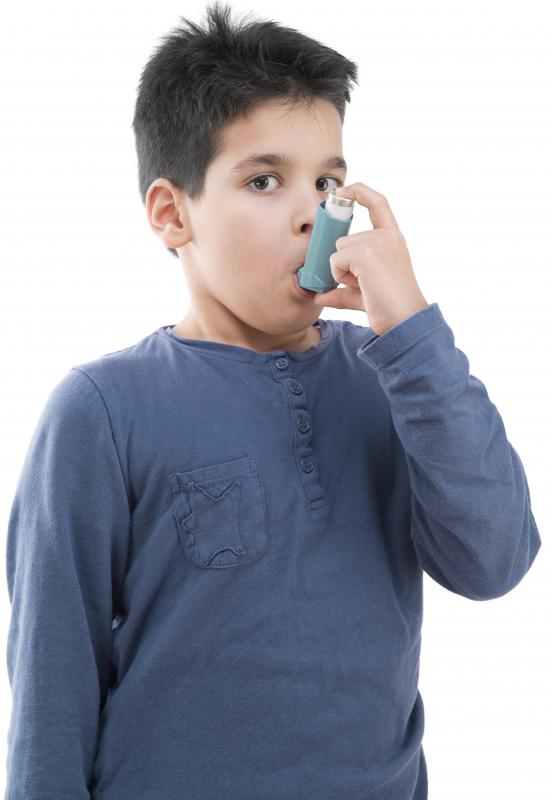At PracticalAdultInsights, we're committed to delivering accurate, trustworthy information. Our expert-authored content is rigorously fact-checked and sourced from credible authorities. Discover how we uphold the highest standards in providing you with reliable knowledge.
How do I Become a Pediatric Pulmonologist?
The pediatric pulmonologist is a specialist in the care of children who suffer from diseases affecting the respiratory system or airway. This medical discipline is comprised of a small number of doctors, while some of the diseases it treats, like childhood asthma, are commonly occurring. This can mean the specialty will be in high demand in private practice or in hospitals, and many people would like to know how to become part of this field. Simply put, people may become a pediatric pulmonologist with hard work, success in college and medical school, and then by completing back-to-back fellowships that provide the requisite specialty training.
People should begin early in training to become a pediatric pulmonologist by focusing on getting good grades in math and science at the high school level. These may help with admission to more prestigious colleges, which in turn might increase chances of acceptance to medical school. Note that in some systems, college and medical school are combined, though length of training is roughly the same time as when they are not. Should high school grades be lacking, students might consider studying at a community college to take any remedial courses needed. With good community college grades, many people are accepted at excellent universities.

In undergraduate work, people will have a few majors to choose from including things like biology, premed, microbiology or biochemistry. Focus should remain on getting excellent grades, and in places like the US, preparing to take the Medical College Admission Test (MCAT). Scores on this partly determine likelihood of being accepted to medical school.

Once in medical school, people will study for three years and complete a year of internship. At this point they become doctors, but many people choose to continue studies further. The first area of study to become a pediatric pulmonologist is pediatrics. People will need to do a three year fellowship in pediatrics prior to studying pulmonology. In this specialty there are still many chances to study respiratory conditions of children, which can help with work later.

The second fellowship to become a pediatric pulmonologist is in pediatric pulmonology. Here, doctors will learn all they need to know to become experts in this field. Both fellowships are likely to require significant clinical work and practice in hospital settings, and doctors can expect long hours and high demand while learning in this field. After conclusion of both fellowships, which are not undertaken concurrently, doctors can apply to the appropriate board for certification.

Many pediatric specialties require significant time commitment. The person who wants to become a pediatric pulmonologist will definitely need to be prepared for lengthy study and practice: roughly 14 years from the start of college. It’s also advisable for pediatric specialists to feel comfortable working with children, since this is a unique population with different needs than the adult population. Those uninterested in the problems and challenges the child patient poses might want to consider a path in adult pulmonology.
AS FEATURED ON:
AS FEATURED ON:















Discuss this Article
Post your comments